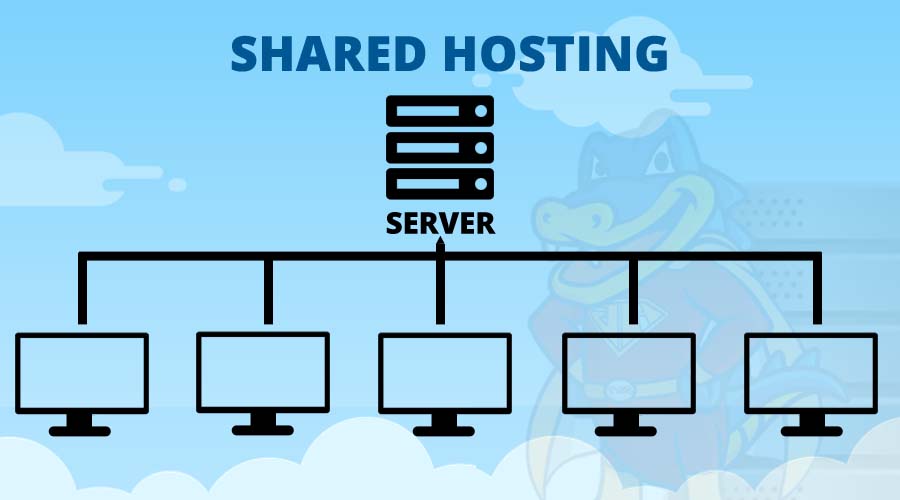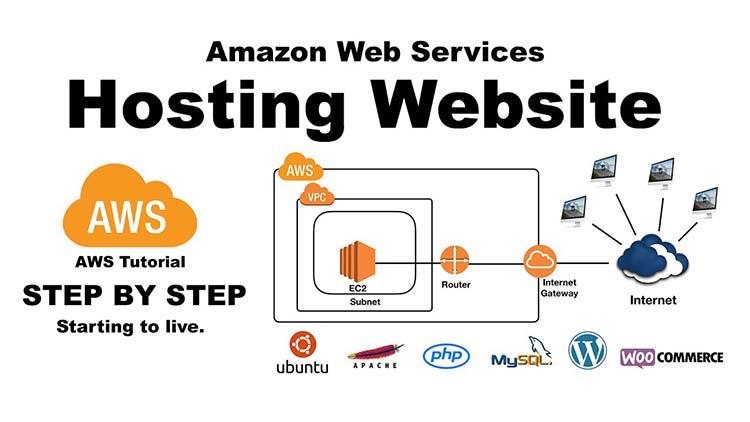At some point in your web hosting journey, you might come across the term “shared hosting.” But what is shared hosting, and how does it work? In this comprehensive guide, we’ll cover everything you need to know about shared web hosting.
What is Shared Web Hosting?
Shared hosting is a type of web hosting where multiple websites are hosted on a single physical server. Each website on the server shares the same resources, including CPU, RAM, and disk space. This type of hosting is popular because it’s affordable and easy to set up.
How Does Shared Web Hosting Work?
When you sign up for shared hosting, you’ll be given access to a portion of the server’s resources, such as disk space and bandwidth. Your website will be hosted alongside other websites on the same server.
The hosting provider is responsible for maintaining the server and making sure it’s secure and up-to-date. They’ll also provide you with a control panel where you can manage your website, including uploading files, creating email accounts, and installing applications like WordPress.
Advantages of Shared Web Hosting
There are several advantages to using shared web hosting, including:
1. Affordability
Shared hosting is one of the most affordable types of web hosting available. Since multiple websites share the same server, the cost is split among all the users. This makes it an excellent choice for individuals and small businesses on a tight budget.
2. Ease of Use
Shared hosting is easy to set up and use. Most hosting providers offer a user-friendly control panel that makes it easy to manage your website. You don’t need any technical knowledge or expertise to get started.
3. Technical Support
Since shared hosting is a popular choice for beginners, most hosting providers offer excellent technical support. You can get help with any issues you encounter, such as setting up email accounts or installing applications.
4. Scalability
While shared hosting might not be suitable for high-traffic websites, it’s easy to upgrade to a more powerful hosting plan as your website grows. Most hosting providers offer a range of plans to choose from, so you can find one that meets your needs.
 Disadvantages of Shared Web Hosting
Disadvantages of Shared Web Hosting
There are also a few disadvantages to using shared web hosting, including:
1. Limited Resources
Since multiple websites share the same resources, you might experience slower loading times and reduced performance. This can be a problem if your website receives a lot of traffic.
2. Security Risks
Shared hosting can also pose security risks. If one website on the server is hacked or infected with malware, it can potentially affect all the other websites on the same server.
3. Lack of Control
With shared hosting, you have limited control over the server environment. You can only use the software and applications provided by the hosting provider. If you need more control, you might want to consider a VPS or dedicated server.
Is Shared Web Hosting Right for You?
Shared hosting is a good choice for individuals and small businesses who are just getting started with their website. It’s affordable, easy to use, and comes with excellent technical support. However, if your website receives a lot of traffic or you need more control over the server environment, you might want to consider a VPS or dedicated server.
Conclusion
Shared web hosting is an excellent choice for beginners who are just getting started with their website. It’s affordable, easy to use, and comes with excellent technical support. While there are some disadvantages to using shared hosting, such as limited resources and security risks, it’s a great option for individuals and small businesses on a tight budget. If you’re looking for a reliable and affordable hosting solution, shared web hosting is definitely worth considering.
Frequently Asked Questions about Shared Web Hosting
What is shared web hosting?
Shared web hosting is a type of hosting service where multiple websites are hosted on the same physical server, sharing its resources such as CPU, RAM, and storage space.
Who should use shared web hosting?
Shared web hosting is an excellent choice for individuals and small businesses who are just getting started with their website and don’t expect high levels of traffic. It’s also a great option for those on a tight budget, as it’s usually the most affordable type of hosting service.
What are the advantages of shared web hosting?
The main advantage of shared web hosting is its affordability. Since multiple websites are hosted on the same server, the costs are shared among all users, making it a more cost-effective option than dedicated hosting or VPS hosting.
What are the disadvantages of shared web hosting?
The main disadvantage of shared web hosting is that you’ll be sharing resources with other websites, which can affect your website’s performance. If one of the websites on the server experiences a spike in traffic or uses too many resources, it can slow down the entire server, including your website. Additionally, shared hosting plans usually come with some limitations, such as limited storage space, bandwidth, and email accounts.
Is shared web hosting secure?
While shared web hosting can be secure, it’s generally less secure than dedicated hosting or VPS hosting. Since you’ll be sharing the server with other websites, there’s a higher risk of security breaches or malware infections. However, reputable hosting providers take security seriously and implement various measures to protect their servers and users’ websites.
How do I choose a shared web hosting provider?
When choosing a shared web hosting provider, consider factors such as uptime, speed, customer support, security, and pricing. Look for a provider that offers reliable service, fast loading times, responsive support, and robust security measures at a reasonable price.
What if I outgrow my shared web hosting plan?
If your website starts to receive higher levels of traffic or requires more resources than your shared hosting plan can provide, you may need to upgrade to a higher-tier hosting plan, such as VPS hosting or dedicated hosting. Your hosting provider should be able to assist you with the upgrade process.
 Sale Success Make More Money Online
Sale Success Make More Money Online
